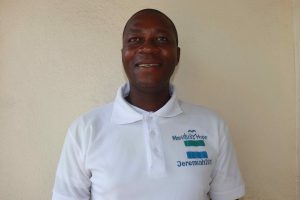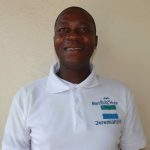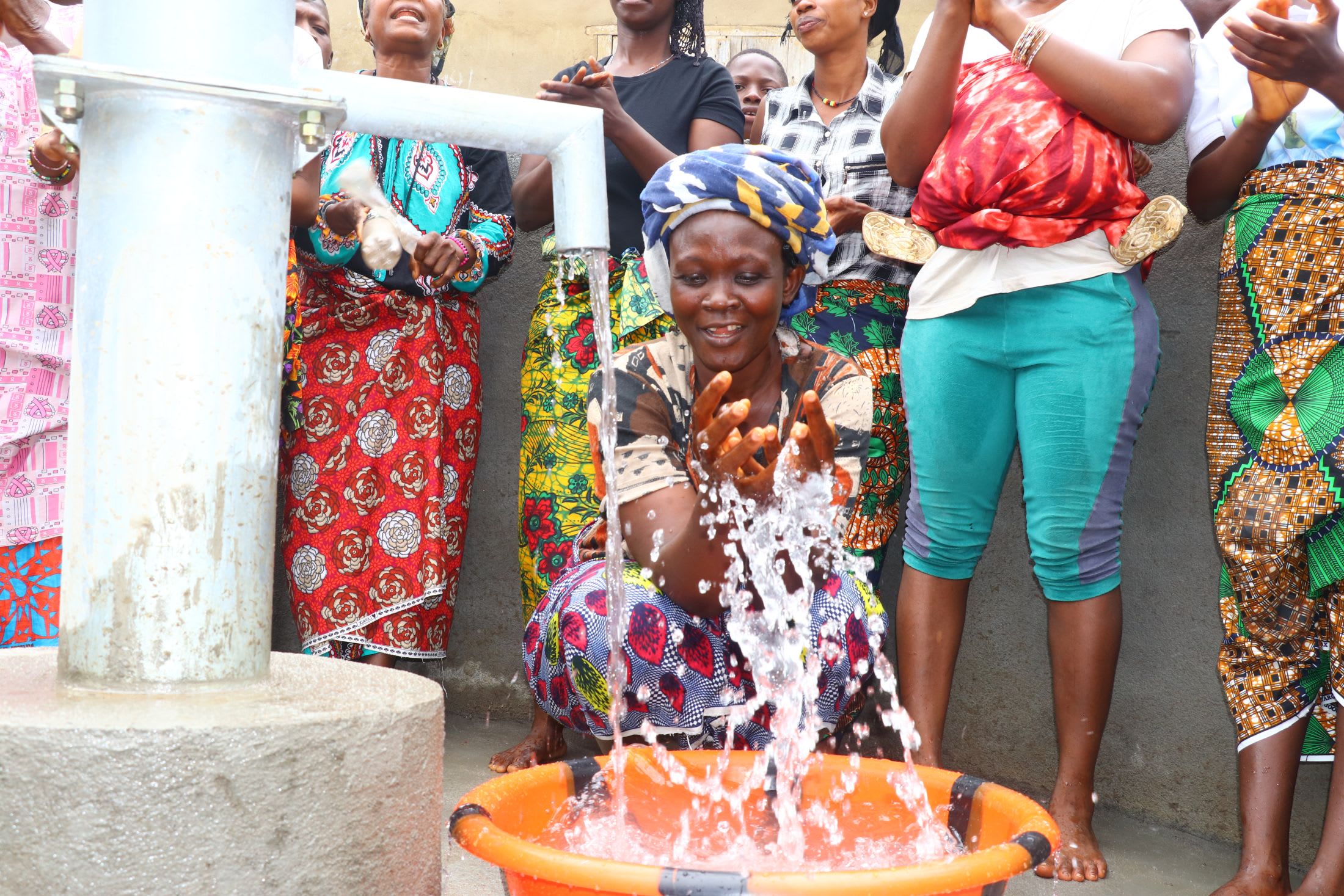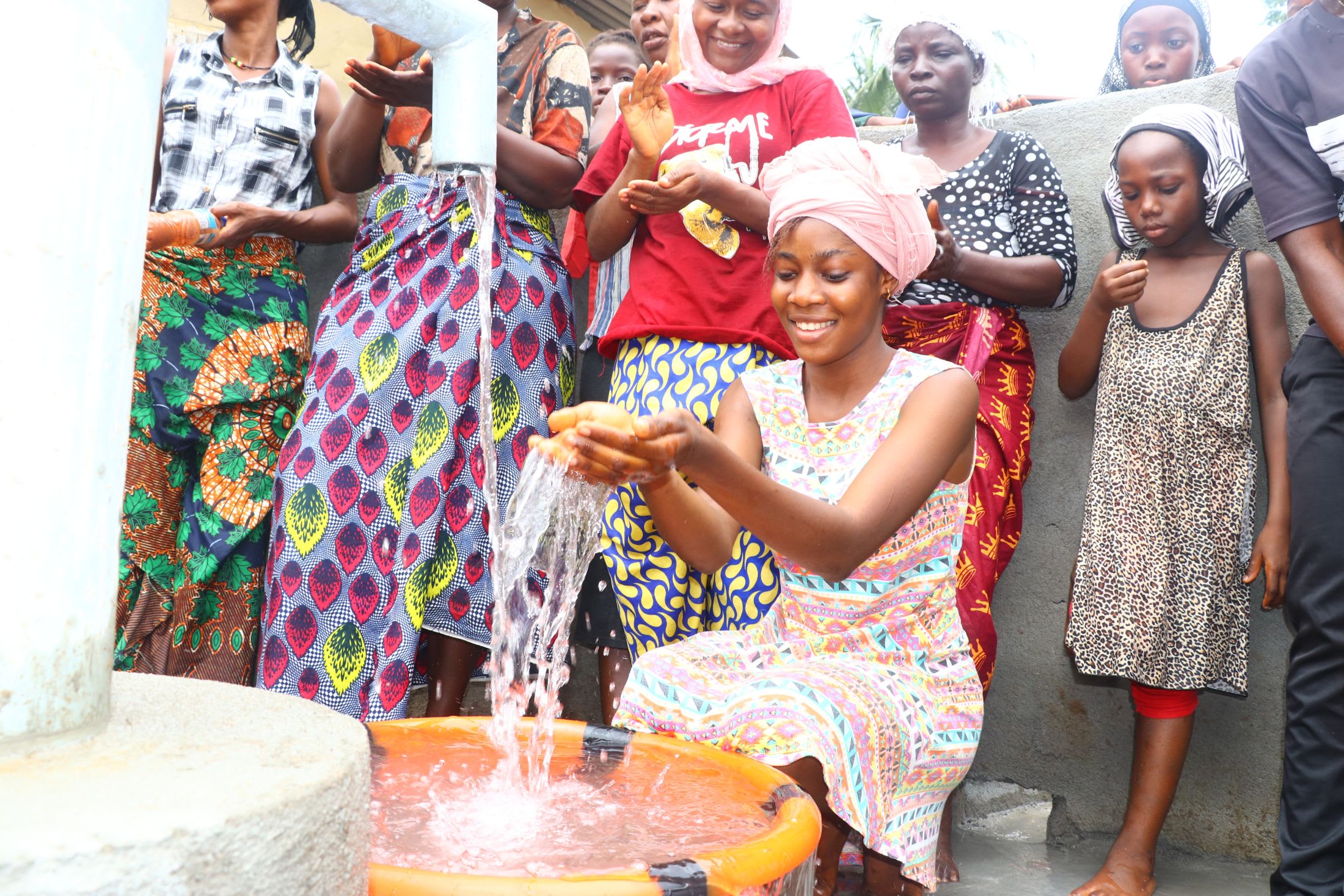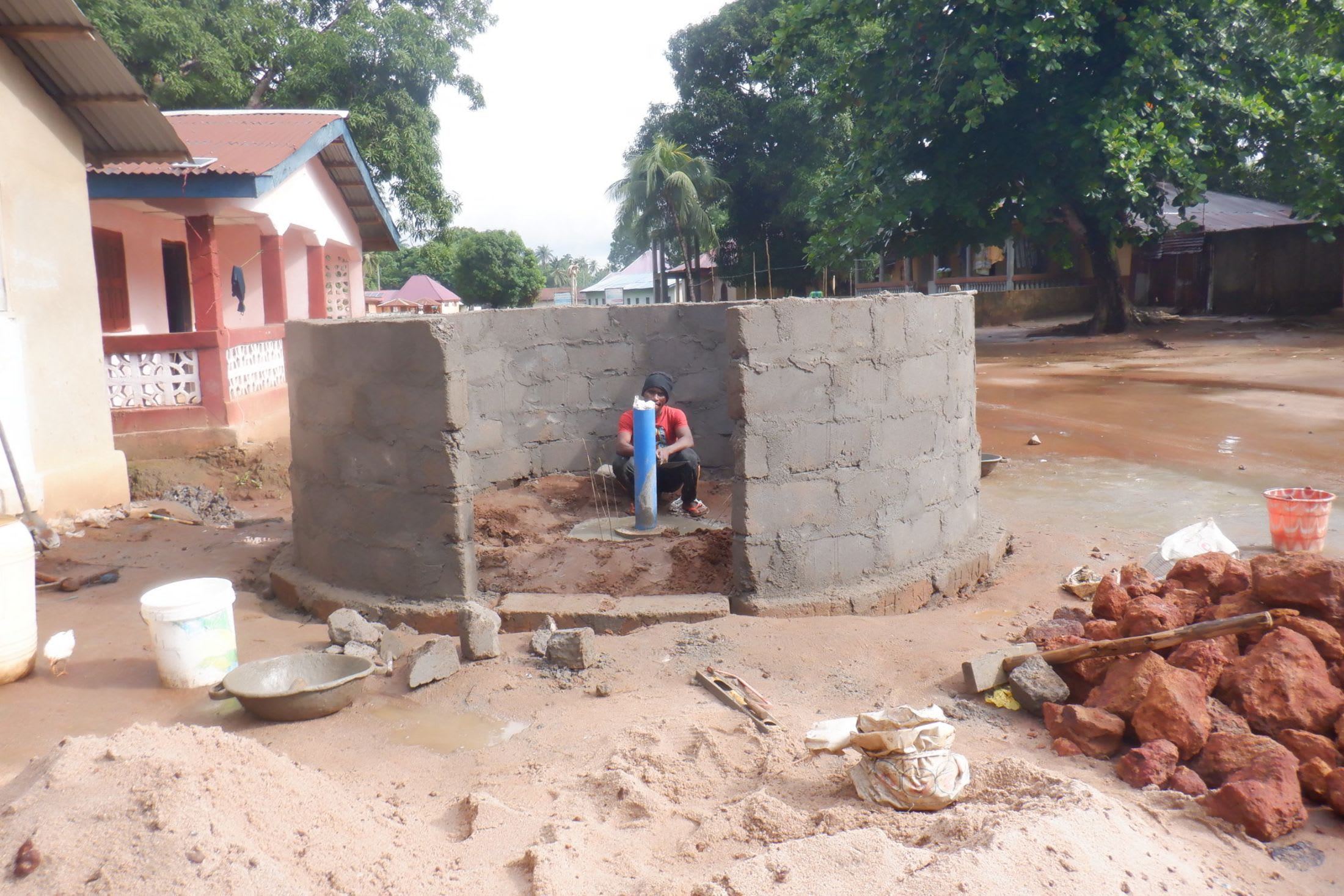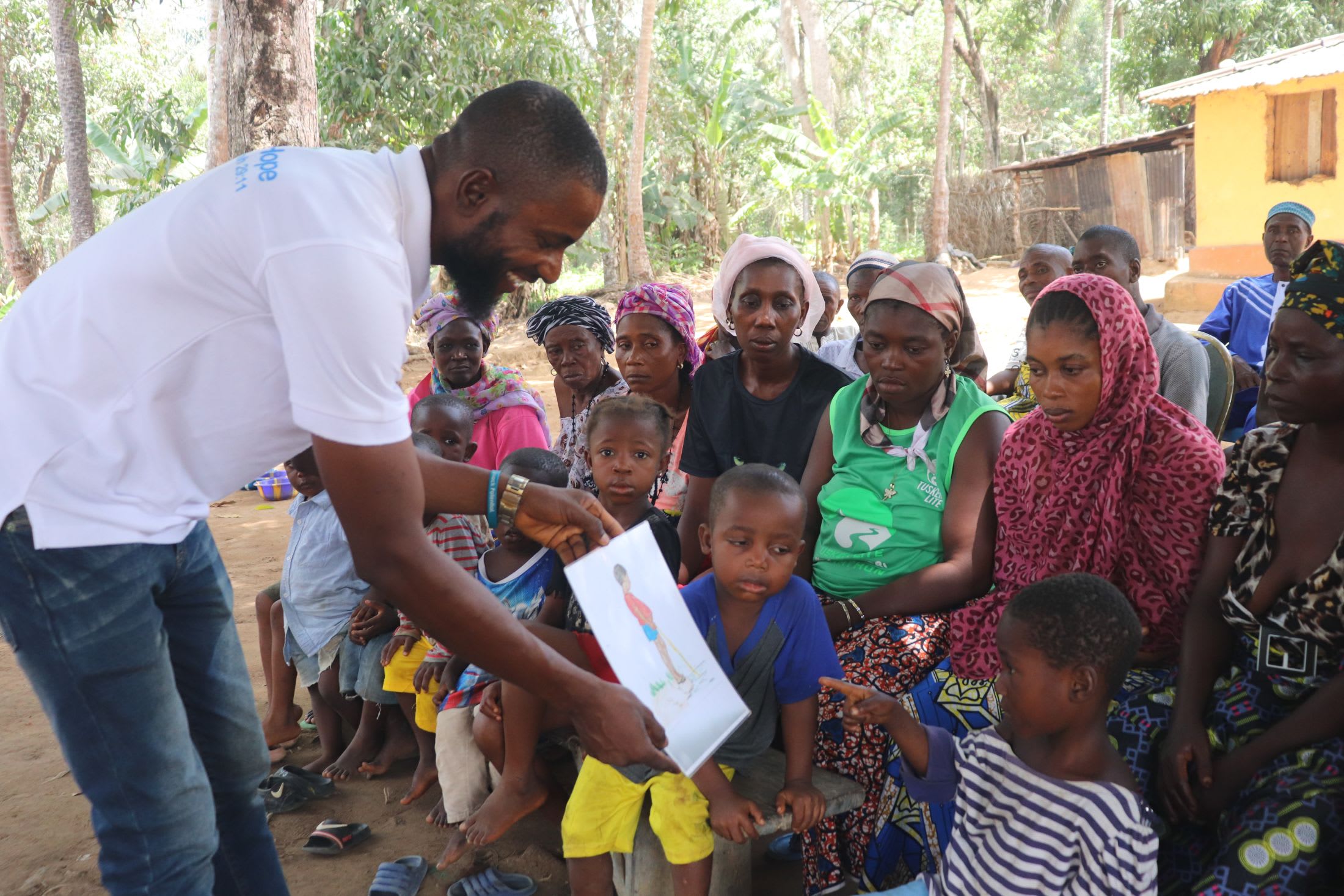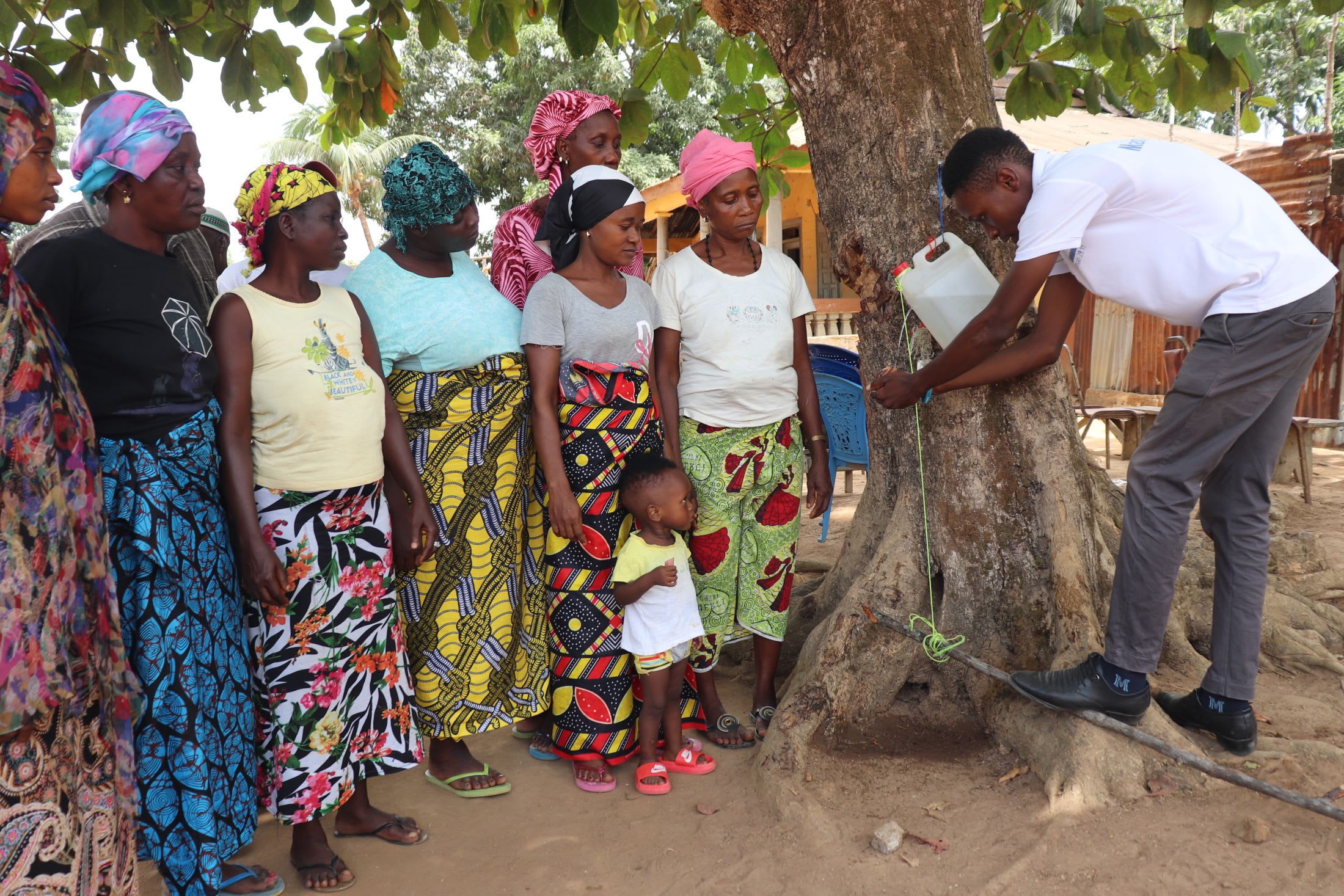The 180 people of the Komrabai Community have an unusable well that needs rehabilitation. As a result, each day, they struggle to access sufficient water from alternative sources like the local swamp. Being forced to risk their lives to collect contaminated water from a swamp makes life unbearable for children and adults alike.
Adamsay B., 14, shown below at the swamp, has never known any other way. Water is crucial to every aspect of life; for Adamsay, that has always been intertwined with fear.
"I have been drinking this water for the past 14 years now. There is no option, and one must take life as it is. I am more worried about the long distance and time spent [fetching]. [There are] snakes along the road, and other animals [that] might cause harm to me or the others while going to the swamp to get water. The water sometimes dries up [and] we must dig to access [more] water. I could not have enough water for domestic activities," Adamsay shared.

Safety is a significant issue affecting every single member of the Komrabai community, not only in accessing the water but also in dealing with water-related illnesses from consuming it.
Like most in this community, 40-year-old Kadiatu Bangura (shown below) is a farmer by trade. Her livelihood depends on having access to water. She shared how the water crisis has affected her life and her business.
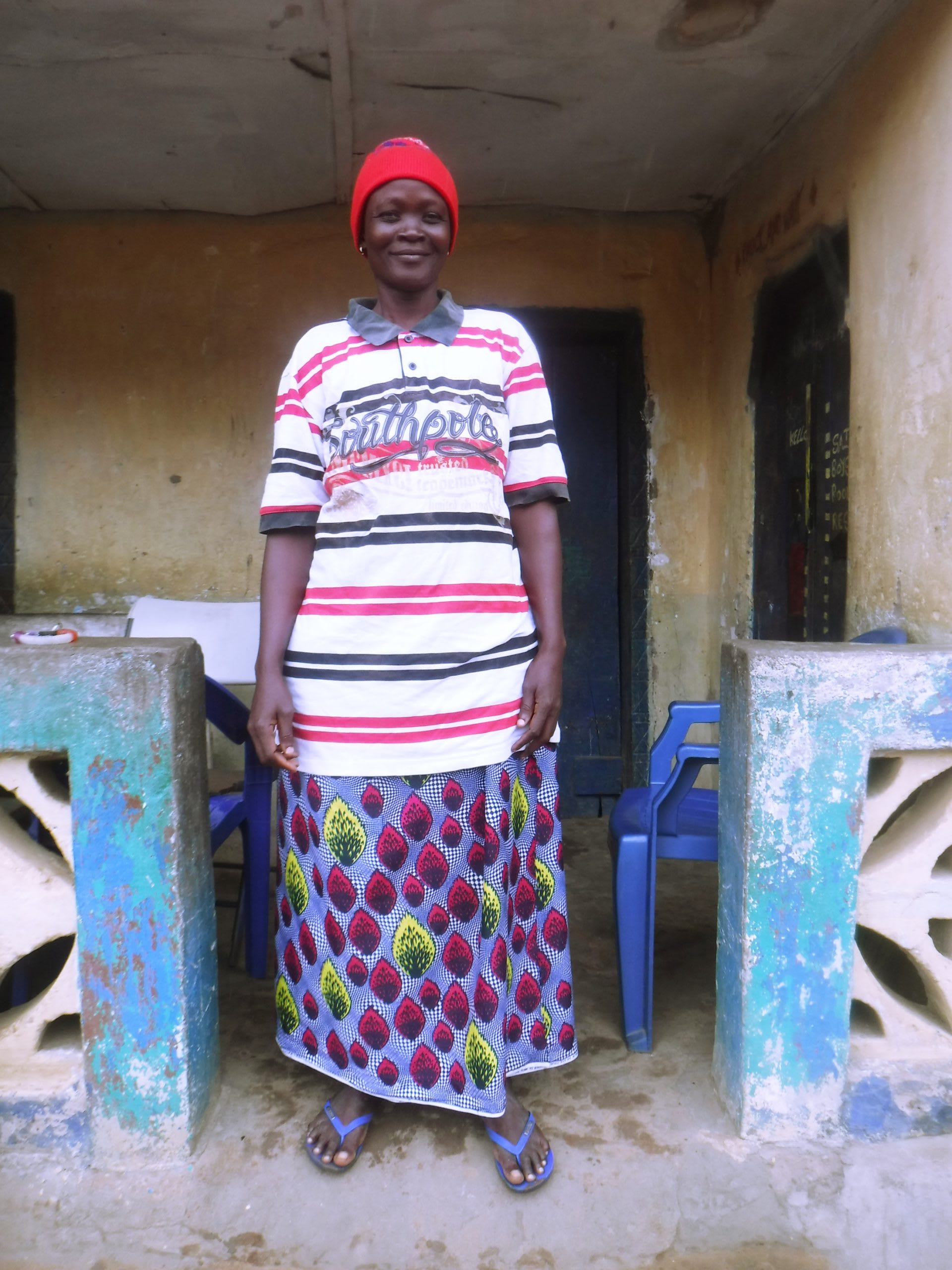
"The challenges of water in our village distress me greatly because I [need to] use enough water to do domestic activities. I produce palm oil, and it requires a lot of water. Water challenges interrupt my production, and sometimes I produce low quantities. The water interruptions cause me to prepare food late for my family and eat late in the evening hours."

"I am worried [about] accessing the water source. Sometimes, I might come across snakes and other animals in the forest area that threaten my and my children's lives. Also, to carry water in a filled twenty-liter Jerrican container (estimated to weigh nearly 40 pounds) from this water source is very difficult because I must walk on a slippery and hilly road. This causes me pain sometimes in my body," Kadiatu continued.
The Komrabai Community has another water source option, but it creates more problems than it solves. Across the dangerous Port Loko Highway is a protected dug well which is also contaminated.
Field Officer Moses Kebbie said, "The alternate water source is [a] protected dug well with a pump, but it is open to contamination because it is not fenced and animals have access to it. This water source is seasonal (runs dry) for [a] few months, and the water source does not provide enough water for this population. It is hard to access because people must cross the Port Loko highway, which is highly risky, especially for children and young women. Sometimes vehicle or motorbike accidents occur by hitting the water fetchers."
Installing a new drilled well will enable children like Adamsay to experience life unencumbered by fear of illness or attack when collecting water, giving them back time to focus on their educations and enjoy their childhood. Kadiatu and other farmers like her will be able to grow their businesses and create better futures for their families.
The Proposed Solution, Determined Together...
At The Water Project, everyone has a part in conversations and solutions. We operate in transparency, believing it benefits everyone. We expect reliability from one another as well as our water solutions. Everyone involved makes this possible through hard work and dedication.
In a joint discovery process, community members determine their most advantageous water solution alongside our technical experts. Read more specifics about this solution on the What We're Building tab of this project page. Then, community members lend their support by collecting needed construction materials (sometimes for months ahead of time!), providing labor alongside our artisans, sheltering and feeding the builders, and supplying additional resources.
Water Access for Everyone
This water project is one piece in a large puzzle. In Kenya, Sierra Leone, and Uganda, we're working toward complete coverage of reliable, maintained water sources that guarantee public access now and in the future within a 30-minute round trip for each community, household, school, and health center. One day, we hope to report that this has been achieved!
Training on Health, Hygiene & More
With the community's input, we've identified topics where training will increase positive health outcomes at personal, household, and community levels. We'll coordinate with them to find the best training date. Some examples of what we train communities on are:
- Improved hygiene, health, and sanitation habits
- Safe water handling, storage & treatment
- Disease prevention and proper handwashing
- Income-generation
- Community leadership, governance, & election of a water committee
- Operation and maintenance of the water point

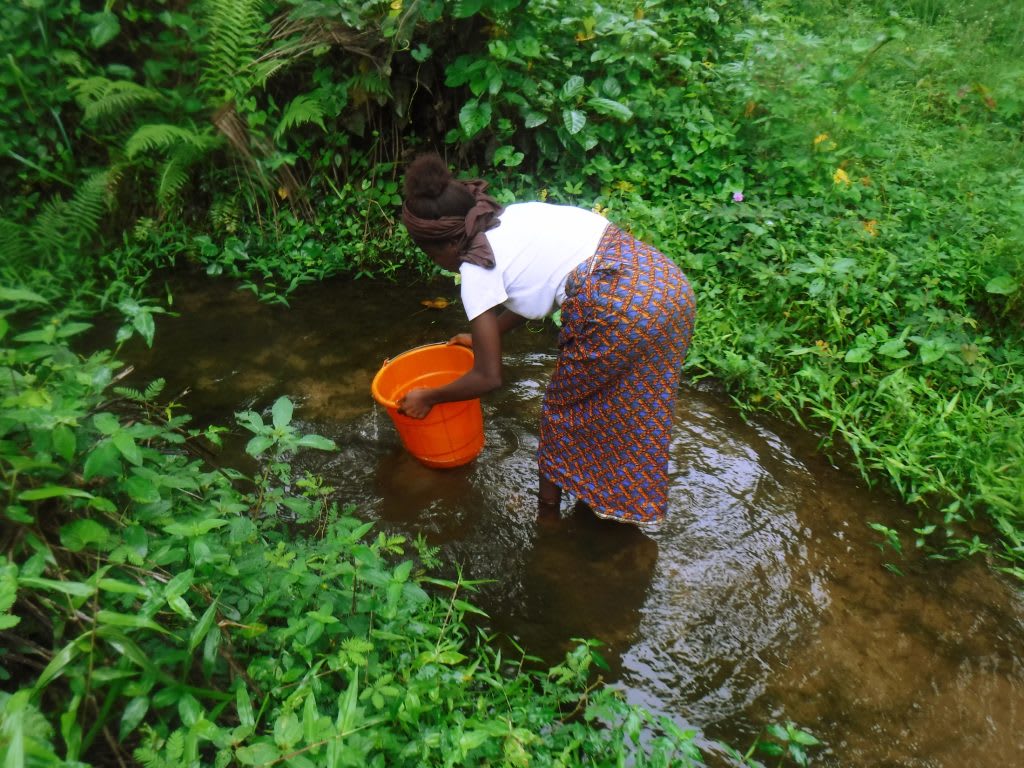
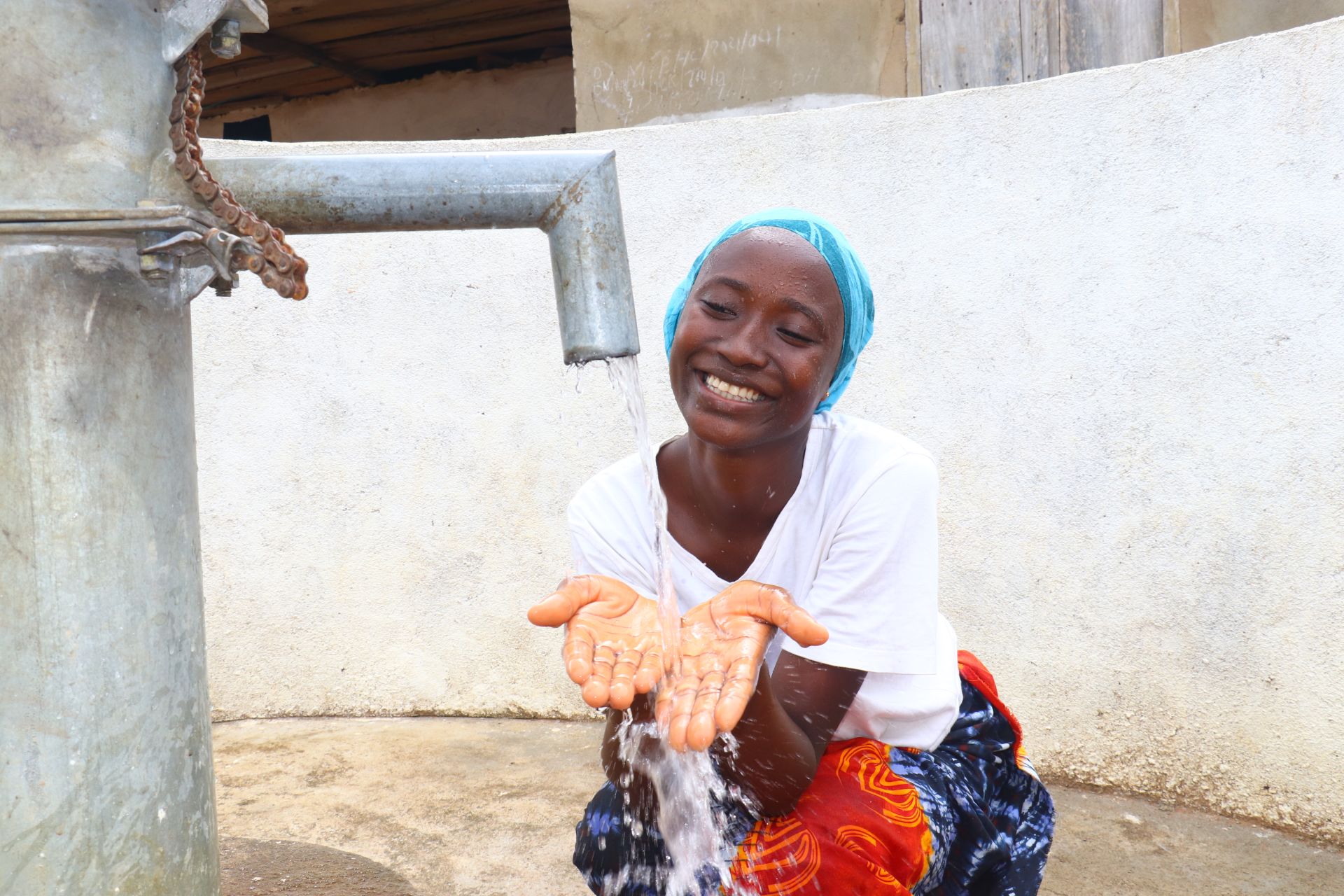
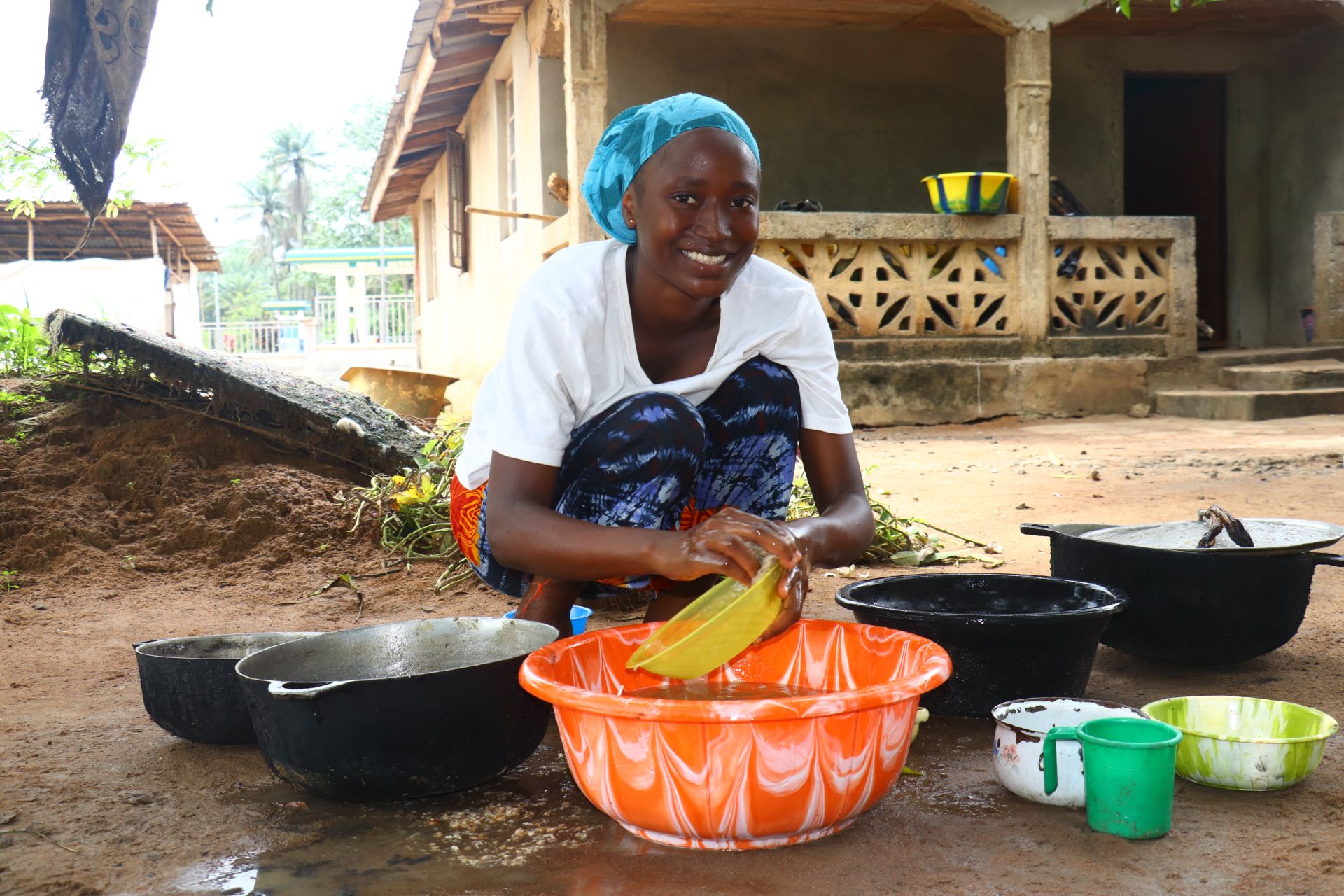

 Borehole Well and Hand Pump
Borehole Well and Hand Pump
 Rehabilitation Project
Rehabilitation Project








